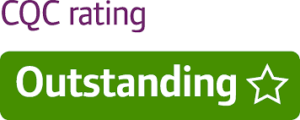• Assessment of needs by internal / external Health Professionals
• Understanding and management of long term and chronic conditions
• Ensuring access to national screening programmes
• Pharmacological interventions including monitoring of efficacy and side effect profiles
• Nutrition and dietetics planning
Physical rehabilitation and management
• Gait, balance and mobility
• Spasticity & Muscle Tone
• Botulinum therapy
• Cardio vascular fitness
• Outdoor mobility
• Falls and manual handling
• Stairs assessments
Activities of daily living (ADLS)
• Personal ADLS
• Personal hygiene
• Toileting and continence
• Domestic activities of daily living
• Community skills
• Road safety
• Driving mobility support
• Spirituality
• Shopping
• Public transport
• Consideration of sexual needs
Psychological approaches
• Psychoeducational work aimed at understanding brain injury and associated issues
• Behavioural approaches including monitoring of positive behaviours and
challenging behaviour, functional analysis, neurobehavioural intervention and
positive behavioural support
• Neuropsychological assessment (to identify strengths and difficulties)
• Cognitive rehabilitation
• Psychosocial adjustment work considering identity, grief, mood, and mental health
Communication
• Social communication
• Reading and writing
• Hearing screening
• Receptive and expressive language
Discharge planning
• Home assessment and advice including coordination of specialist equipment
• Liaison with family and other support networks
• Liaison with ICB, Social Care and other stakeholders
• Plan for generalising skills to new environment
• Relapse prevention planning
Vocational Rehabilitation
• Return to work assessment and support
• Voluntary work skills support
Swallowing
• Eating and drinking
• Dysphagia
Family & Carer Support
• Financial support
Advanced care planning / end of life
• Gold standard framework in end of life care



 Find your next great career opportunity at The Oakleaf Group
Find your next great career opportunity at The Oakleaf Group